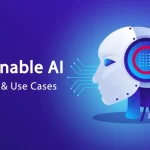If it’s one thing we’ve noticed changing, it’s the way businesses are working. Rather than using their instincts, they are using AI and data to create scalable business solutions. However, you must think about reputation and regulations-related issues. For example, IBM is being sued by Los Angeles for misappropriating the data they collected through the weather app.
Another example is an investigation going on Optum. The regulators are investigating them for creating an algorithm that makes doctors focus more on white patients, irrespective of how sick the black or brown patients are. In fact, even Goldman Sachs is under fire as they are being investigated for using the algorithm that caused gender discrimination. To be precise, it was said that men got more credit limits on their cards as compared to women.
Not to forget, Facebook was dragged into courts because they used personal data of over 50 million users. In simpler words, there is a lot going on. There was a time when data ethics and ethical AI were the main topics for academics and nonprofit organizations only. However, the times are changing as giants like Twitter, Microsoft, Google, and Facebook are talking about.
In fact, they have rolled out teams to battle the ethical problems that arise from their data collection and analysis. So, if you belong to this industry, we are sharing more about ethical AI.
What is Ethical AI?
Ethical AI depends on guiding rules and principles that stakeholders have set. It ensures that AI technology is developed responsibly and isn’t causing harm to anyone. Ethical AI takes a secure, safe, and human approach to technology. In addition, it ensures environment-friendliness because it aligns with eco-friendly rules of manufacturing.
It keeps an eye on the data by ensuring it isn’t breached while ensuring mitigation of environmental risks. There are myriad of ways to implement these ethics. One is to devise a code of ethics for companies and share it with the personnel. The second one is to follow government-made regulatory frameworks.
Both these ways are suitable for regulating artificial intelligence technology. This is because they cover national as well as global and company-level ethical concerns. To begin with, only the academic researchers and founders of nonprofit organizations were talking about these AI ethics. However, Meta, Google, and IBM have started drawing out the teams.
These big names have new teams that resolve ethical issues associated with collecting huge data amounts. Similarly, the intergovernmental and government organizations have started creating AI ethical policies and regulations. They are using academic research to devise these policies and regulations.
The Importance of Ethical AI
While AI has made lives easier by multiple folds, there are a lot of concerns regarding privacy and misuse. For this reason, people are big on ethical AI as it’s based on a proper code of conduct. If you were double-guessing its importance, we have some points to share.
The Novel Risks of AI
AI adoption is happening in every industry. This adoption has led to the revenue generation of $500 billion in 2023 alone. In addition, the revenue is going to increase by 19.6% on an annual basis. This is because AI is helping improve efficiency and offer innovation. This is also reducing the load on human and manual labor.
However, it doesn’t mean that we turn a blind eye to novel risks of AI. For instance, AI tends to prioritize white patients over black patients. Similarly, in the insurance industry, minorities might end up getting higher quotes for their vehicles. In addition, in the legal world, the algorithms show favoritism towards white criminals, so brown and black people end up getting more punishments.
Ethical AI is Offering Protection
While these risks are huge, complying with AI ethics and principles can make sure businesses don’t struggle with this. For instance, businesses can start by removing bias in the training data so there is no imbalance. The data shouldn’t have any discrepancy related to a specific group of people. For instance, the commercial tools for gender classification aren’t accurate for women with a darker skin tone.
On the contrary, it showed maximum accuracy for fair-skinned men. This discriminatory data is used to train the AI models, which causes bias. Similarly, the resume screening tool of Amazon was biased against women. These resumes were screened for technical positions in top companies. Having said that, only white males were hired (well, the majority of them).
As you can see, discrepancy in the training data led to bias against specific groups of people. However, if they had used ethical AI principles, this wouldn’t have happened. In particular, the ethics should be used during the design stage. On top of everything, explainability is the most important factor. It was highlighted when Apple’s algorithm gave men a higher credit limit.
What happened was that Apple started giving more credit limits to men, leading to gender discrimination. It happened even when females had a high credit score. Truth be told, Apple was cleared for this, and Goldman Sachs ended up justifying the decision (they were providing the cards). This showed that we need to make AI more transparent so decisions are easier to explain.
How Should Businesses Respond?
With more people using AI, the public is getting more aware of the risks. For the same reason, the need for regulations will intensify. As a result, businesses are under pressure to implement AI systems responsibly, and most importantly, ethically. It’s not too far away that companies will have to use ethical AI as a law in their business process.
We are saying this because NY city legislation will need impartial and independent bias audits of employment decision tools. These tools are used for screening potential employees for bonuses and promotions. Moreover, Colorado legislation will stop insurance companies from using discriminatory algorithms and data in their regular processes.
Not to forget, there is an EU AI act, which is meant to regulate the design and development of AI systems. It will also regulate the use of these systems, irrespective if they are being used in education, banking, or HR industries. It’s no lie that it will be the first law to regulate AI’s use in a proper manner. In simpler words, it will become the GDPR for artificial intelligence.
This is because if someone doesn’t comply, there will be huge penalties. Moreover, the companies will have a huge list of requirements that they have to follow if they want to use AI.
The Ethical Challenges
AI is not mature yet. On that account, we see never-ending challenges arising. Most of them are ethical, which we shall explain now!
Responsibility
Many people have understood that decisions made by AI can have severe consequences. It’s important to understand its impact on life, health, and capital. For this reason, the stakeholders need to address these issues and keep themselves accountable for the possible consequences of these systems. The stakeholders include system developers, lawyers, ethics organizations, and regulators.
Explainability
When an AI system screws up something, the teams have to trace through hundreds and thousands of algorithms. In addition, they have to read through different data processes to understand the complex changes. Having said that, businesses should be able to use AI to explain the source of data.
It must explain how the algorithms are working and explain the “why” of many processes. Keep in mind that AI should have high traceability. It’s important as it can help track the error back to its root.
Misuse
Many people end up using the AI systems for ways other than it was created for. As a developer, one needs to analyze this during the design stage so the risks are minimized. That’s because once you understand the possible misuse, you can create preventive and safety measures.
Fairness
If any dataset has personal information, one needs to ensure zero bias. You’ve to ensure that there is no bias in ethnicity, race, and gender.
The generative AI apps are enjoying quick adoption, such as Dall-E and ChatGPT. Both these tools depend on existing content to make new content. This is only increasing the ethical concerns related to artificial intelligence. For instance, there is infringement of copyrights, plagiarism, and spreading of misinformation.
Stakeholders in Ethical AI
Ethical AI is all about using codes of conduct and ethical principles to use AI. For this reason, many people have to work in unison (yes, we are talking about stakeholders). They are responsible for seeing how political, social, and economic issues will impact AI systems. However, many people don’t understand who the stakeholders are, so we are sharing some!
Government
It’s not possible to devise an AI code of ethics without the presence of the government. This is because the committees and agencies operating within the government can help generate ethics. For instance, NSTC created the Preparing for the Future of AI report. It shows how AI is impacting regulation, security, public outreach, economy, and governance.
Academics
These are the professors and team of researchers. They make reports and show theory-backed stats. In addition, they share ideas that can help nonprofit organizations, governments, and businesses with the ethical adoption and use of AI.
Nonprofit Organizations
The organizations, such as Queer and Black in AI, are playing a role in AI. For instance, they will help represent diverse groups through AI technology. For instance, the Future of Life Institute helped create 23 instructions, which are known as Asilomar AI Principles. These instructions outline the outcomes, risks, and challenges of AI technology.
Intergovernmental Organizations
The World Bank and the UN are common examples of these intergovernmental organizations. They raise awareness and are helping create agreements for ethics related to AI. Back in November 2021, UNESCO created Ethics of AI, which helped with the promotion of human rights.
Private Businesses
This is about companies like Google and Meta. In addition, the companies working in healthcare, consulting, and banking are also the stakeholders. In particular, it’s related to companies using artificial intelligence technology. That’s because they’ve a responsibility to make an ethics team that can create a proper code of conduct. As a result, the companies will have standards that they need to follow.
The Future
When we talk about the ethics of AI, we don’t realize that it will need constant upgrades. AI is playing an important role in our lives, so there is a need for clarity and openness. In addition, the systems must be built on proper frameworks. Technology companies must keep AI ethics as a priority to ensure decision-making is easier.
There will be a need for proper protocols to ensure AI technologies are implemented properly. In addition, they must be morally responsible and focus on clearing out the bias. Businesses will have to pay attention to ethics.
How to Make AI More Ethical?
Many companies and nations are having a hard time ensuring the ethical implementation of AI systems. Being a business, following are some ways to follow!
Create a Code
It’s the first step of implementing ethical AI. It has to show principles and values that every AI system in the business will follow. We recommend creating this code in collaboration with stakeholders. The relevant stakeholders include industry experts, internal teams (employees), and customers. It will ensure that the concerns of external and internal stakeholders are being catered to.
Focus on Inclusion & Diversity
The data needs to be inclusive and diverse. It’s to ensure that there is no bias in the results. This is because when you don’t focus on inclusion and diversity, the results will have a lot of discrimination. As a result, people will be harmed. For this reason, the data should represent different ethnicities, races, genders, ages, and more.
Properly Monitor the System
Proper monitoring of the system is important to ensure top-notch performance. It is also important to minimize harm. For this purpose, you need to test and audit the systems regularly. Also, regular system analysis is crucial. If there are any errors during monitoring, they must be fixed. It will ensure the ethical working of systems.
Train the Employees
The employees should be taught about the ethical use of AI. In addition, they should get regular training on how to use and develop ethical AI. It will ensure that every person in the company is working towards a specific goal. In fact, training them will help them with the identification of ethical concerns, so they can be fixed.
Transparency
If you have implemented an AI system, you should be transparent about how these systems work. In addition, you should show how data is used. When you are transparent, stakeholders will trust you, including your employees and customers. Topping it all, it ensures there is no exploitation of people. So, be transparent about how businesses are making decisions and which algorithms they are using.
Fix the Privacy Issues
Privacy concerns are evident, and you must consider them while developing ethical AI. These concerns are common when data is processed and collected. To be precise, you should ensure that AI system is conforming to data security as well as protection policies. Moreover, businesses must ensure the secure collection and processing of data.
Remember the Human Rights
There are times when the results of AI can have harmful consequences for specific people and groups. So, when you are creating an AI system, keep in mind the human rights. In simpler words, there must be no discrimination against any race or gender.
Think about Potential Risks
The point is to anticipate the potential risks because it helps with quicker mitigation. These risks can come from data and algorithms used in the AI systems. In addition, it’s related to how an AI system is implemented. For this reason, you’ve to think about potential risks and make strategies beforehand. In fact, it will increase the uptime of AI systems.
Conduct Reviews
On top of everything, you should conduct regular reviews of the AI system. It helps ensure compliance with the set ethical standards. As a business, you need to keep an eye on performance and take steps if there are some errors.
Connect with Ethical Providers
If you are doing this for the first time, it’s recommended to connect with ethical providers. They help you develop rules for ethical AI. You need to look for people who pay attention to transparency, diversity, human rights, and inclusion.
The Principles
If you are still thinking, “is AI ethical?” we are sure you’ve the answer. However, we don’t realize that there are guiding principles that make it ethical. If you aren’t aware of these principles, read below!
Safety
First of all, the AI system must not cause harm to anyone. It should not have any threat to the mental or physical safety of the users.
Interpretability
If there are high-risk results, it should show how specific predictions were made. Also, it must explain the entire process. As a business, you must be transparent about which algorithms are making specific decisions.
Lawfulness
Laws are made to protect the public. For this reason, every stakeholder should comply with laws and regulations. Irrespective of what stage of the AI lifecycle you are at, laws must be respected and followed.
Security
The AI systems must be fully secure from cyber threats. In addition, you’ve to focus on every AI tool, whether they are based on the cloud or you’re using them through third parties.
Privacy
When you are using data from different people to design AI systems, you should inform them. They should know that someone is using their available information. In addition, you must take steps to protect the data so it doesn’t fall into the hands of hackers.
Accountability
On top of everything, someone must be assigned the role of ensuring ethical compliance. This person will be responsible for checking if the AI system is being used ethically.
Frequently Asked Questions
Shed light on ethical concerns revolving around AI?
The unavailability of transparency is the first thing. In addition, we must remember that artificial intelligence is not neutral, and there is a probability of discrimination and inaccuracies.
Are responsible and ethical AI the same?
Ethical AI is important for fostering moral values and enabling human understanding. On the contrary, responsible AI is focused on the deployment and design of AI systems.
What role do AI ethicists play?
They are responsible for helping companies understand the complicated AI rules, standards, and regulations. They help ensure that AI systems are aligned with legal standards.
Who should decide the ethics for AI?
There are multiple stakeholders in this decision. For instance, the national government should decide the ethics, along with nonprofit organizations and intergovernmental organizations.
How is AI creating ethical issues?
AI can create ethical issues related to data security and privacy. In addition, there are question marks on policies. Also, there is a high risk of plagiarism and misinformation.
The Bottom Line
It’s vital to focus on the ethical implications of technology and policy when you want to make AI ethical. It’s not a secret that governments have started enforcing laws and policies for ethical artificial intelligence. It’s also changing how companies deal with legal repercussions if there is some ethical concern.
For anyone who is working with AI must understand the risks of unethical AI. So, creating proper resources can help reduce these risks. Truth be told, it might sound counterintuitive to use tech for detecting unethical practices. However, there are tools to check the legitimacy of the content and ensure the ethical development of AI.





